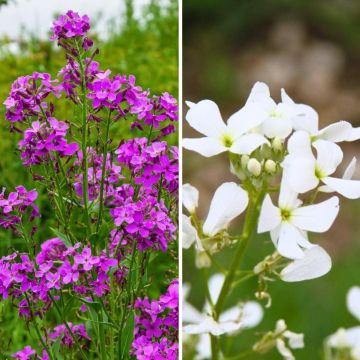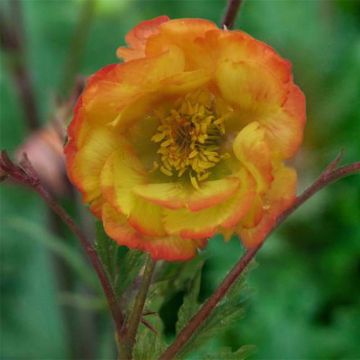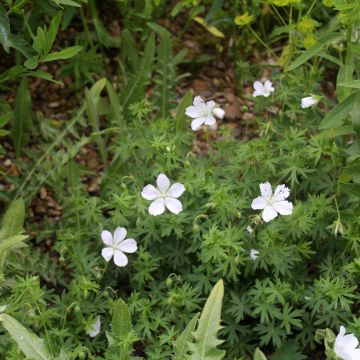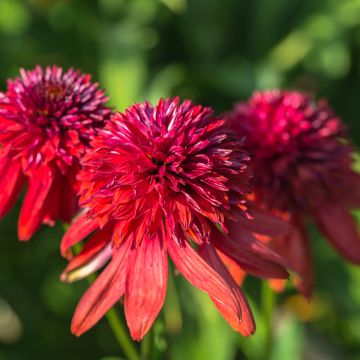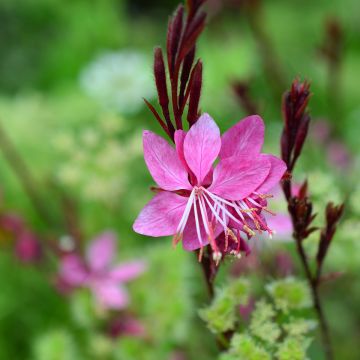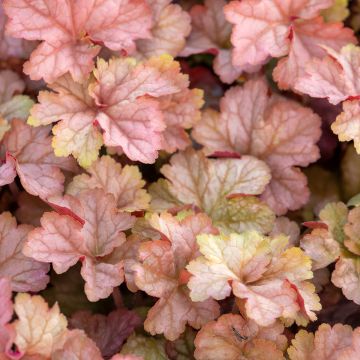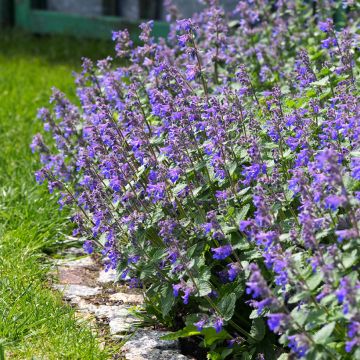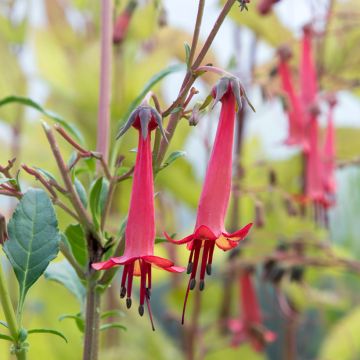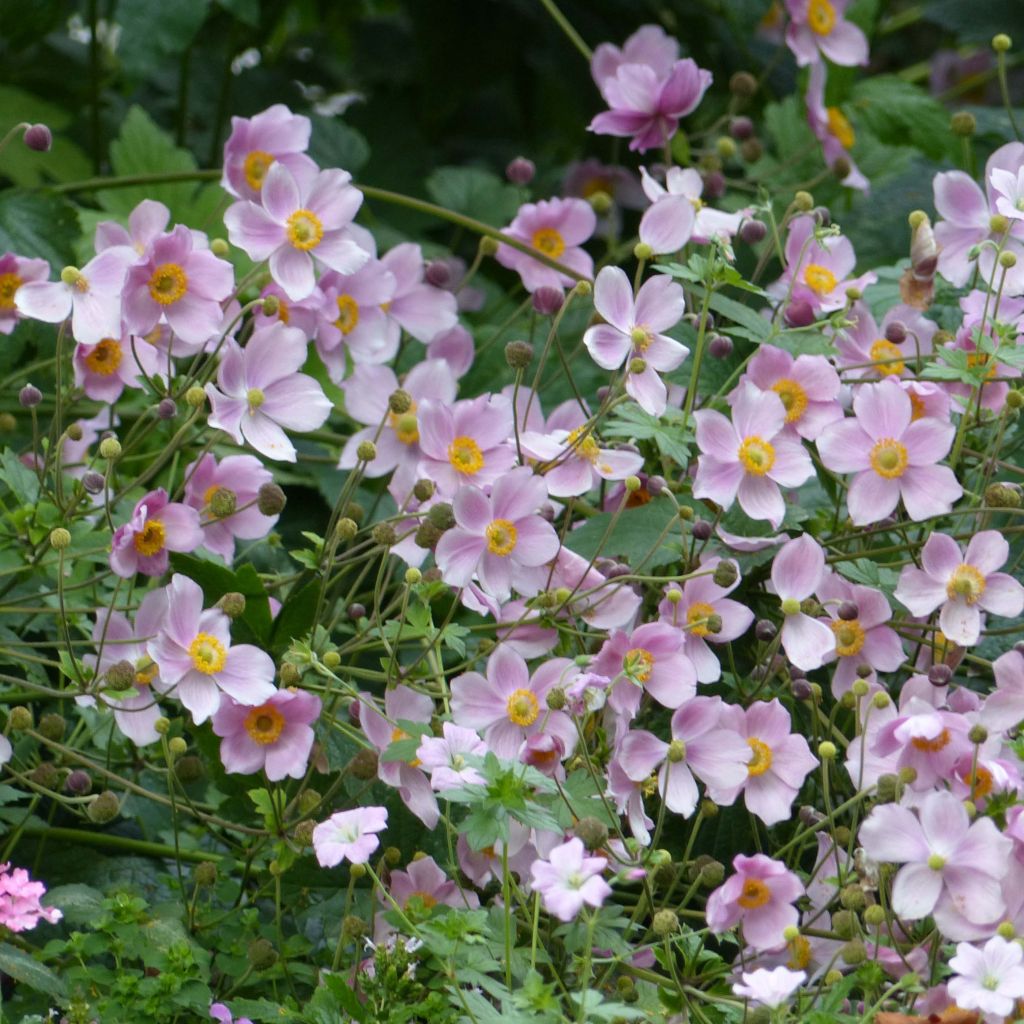

Anemone hupehensis September Charm
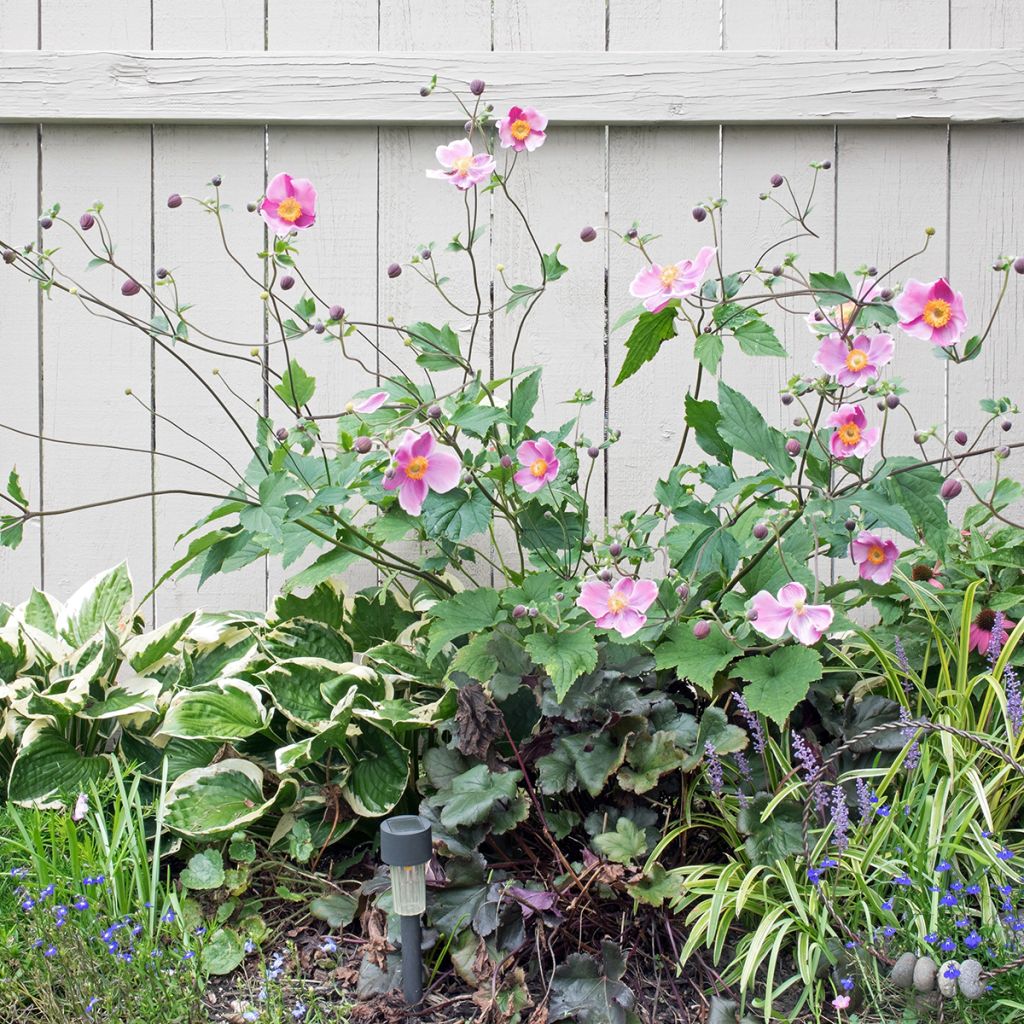

Anemone hupehensis September Charm
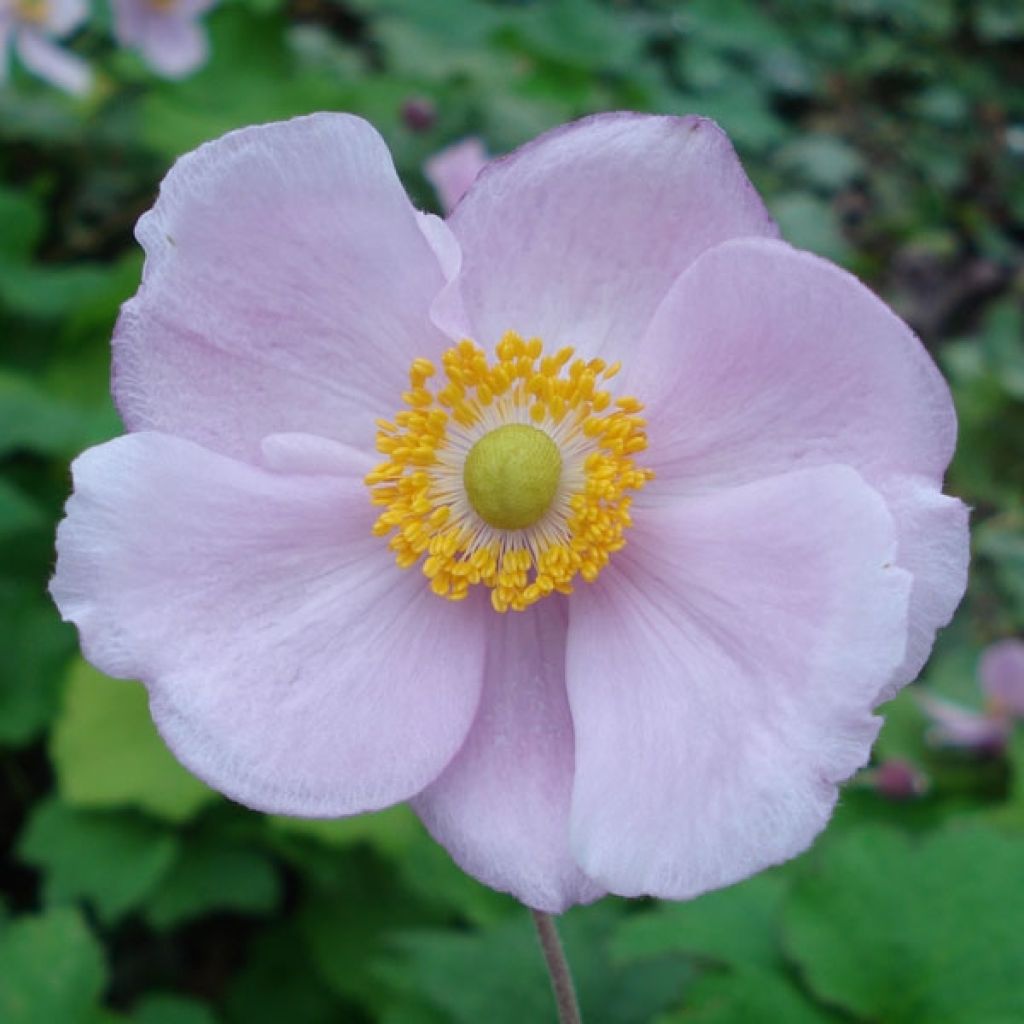

Anemone hupehensis September Charm
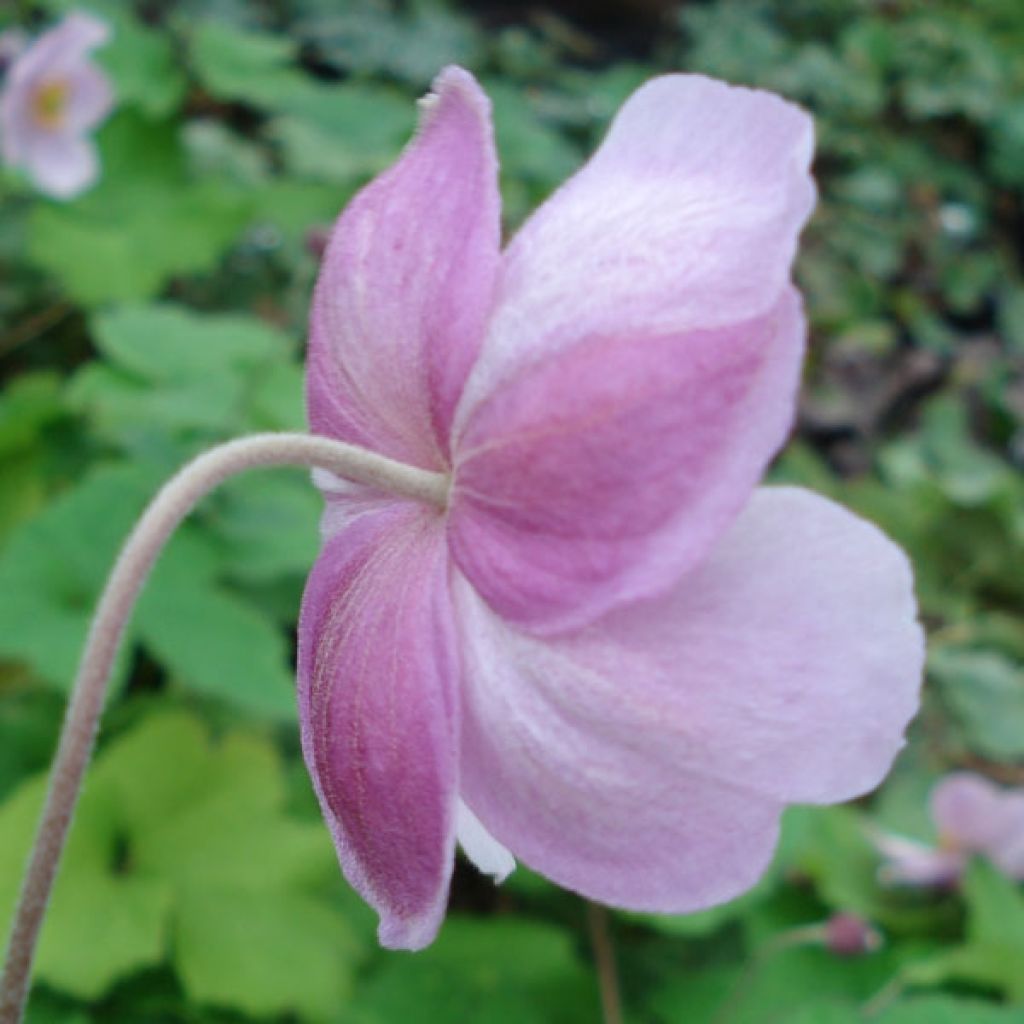

Anemone hupehensis September Charm
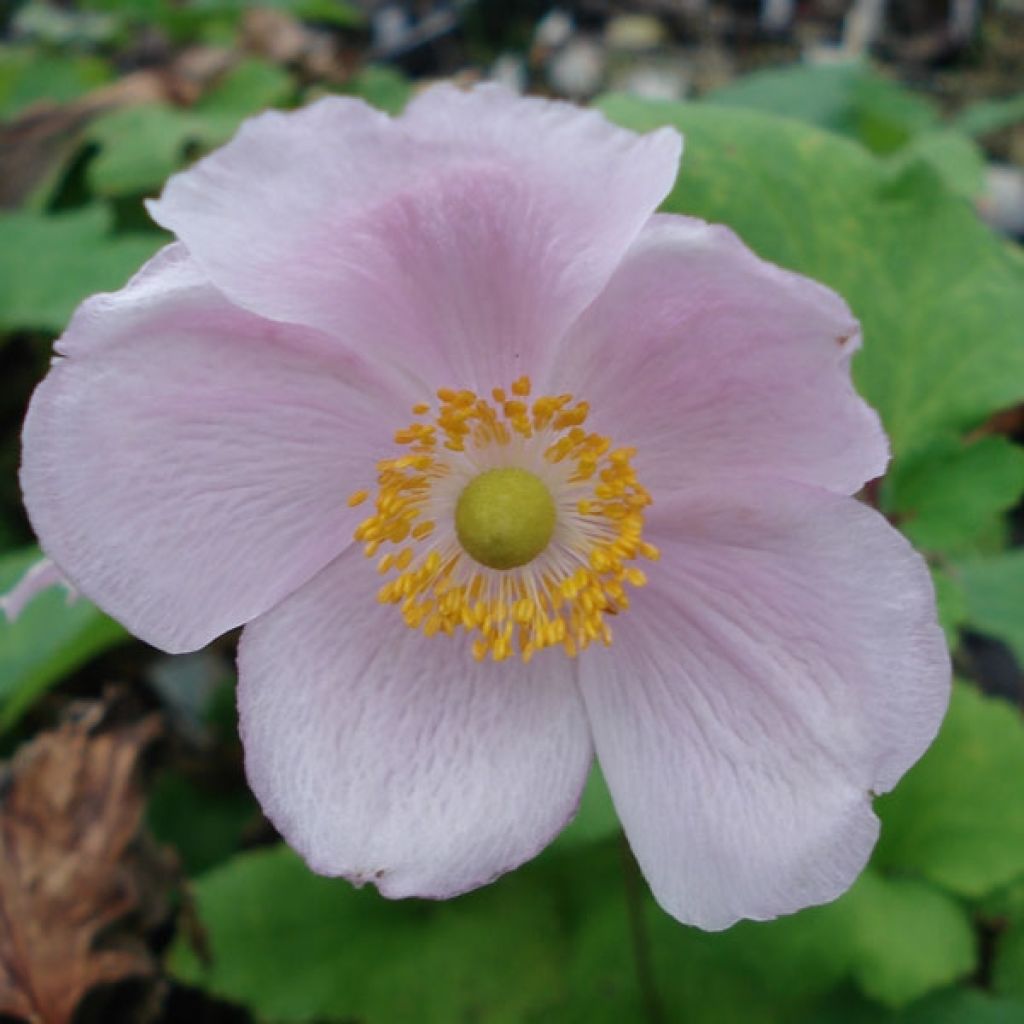

Anemone hupehensis September Charm
Anemone hupehensis September Charm
Anemone hupehensis September Charm
Japanese anemone, Thimbleweed, Windflower
Only one out of three young plants flowered and survived the summer despite constant care... Perplexing...
Elie, 09/01/2026
Special offer!
Receive a €20 voucher for any order over €90 (excluding delivery costs, credit notes, and plastic-free options)!
1- Add your favorite plants to your cart.
2- Once you have reached €90, confirm your order (you can even choose the delivery date!).
3- As soon as your order is shipped, you will receive an email containing your voucher code, valid for 3 months (90 days).
Your voucher is unique and can only be used once, for any order with a minimum value of €20, excluding delivery costs.
Can be combined with other current offers, non-divisible and non-refundable.
Home or relay delivery (depending on size and destination)
Schedule delivery date,
and select date in basket
This plant carries a 12 months recovery warranty
More information
We guarantee the quality of our plants for a full growing cycle, and will replace at our expense any plant that fails to recover under normal climatic and planting conditions.

Would this plant suit my garden?
Set up your Plantfit profile →
Description
Anemone hupehensis 'September Charm' is perhaps the most graceful of all and undoubtedly the most famous of Anemone hupehensis. It owes this to its vigour and floribundity, as much as to the charm of its subtly fragrant large flowers with tones of pink mother-of-pearl, which appear in late summer. This robust variety slowly but surely spreads and discourages weeds while filling the space with beautiful dark green clumps for 8 months out of 12. In summary, this carefree perennial brings a wonderful charm to shady and somewhat cool areas of the garden, without requiring much maintenance or gardening knowledge.
Japanese anemone 'September Charm' is a perennial herbaceous plant with fibrous and wandering roots and a woody stump. It belongs to the Ranunculaceae family. It is a descendant of Anemone hupehensis, native to central and western China. This ancient variety has been rewarded by the Royal Horticultural Society for its ornamental qualities and its performance in the garden. It reaches approximately 1m (3ft) in height when flowering and forms broad clumps of at least 60cm (24in). The foliage persists in winter depending on the climate. Very fluffy when they unfold, the dark green leaves are divided into 5 lobes, which are palmate, strongly veined on the underside, and covered with small hairs.
The particularly abundant flowering takes place from August-September to October. The large flowers, 6 to 8cm (2 to 3in) in diameter, are carried by sturdy, slender and straight branched stems. They first appear as oval and fluffy buds in a somewhat greyish pink, then open into slightly loose flared cups composed of a row of 5 petals. Their colour is a fresh mauve pink, shaded with a slightly deeper pink on the reverse and in the centre, around a large crown of yellow stamens. Japanese anemones can live for about ten years in the same place.
A vigorous plant when grown in suitable conditions, Japanese Anemone 'September Charm' thrives in cool, light and humus-rich soil. It tolerates brief drought episodes and can withstand non-burning sun. It thrives in semi-shaded or light sun situations such as at the base of trees, on the edge of undergrowth, or at the back of borders where it forms magnificent colonies. You can plant it alongside persicarias, cimicifugas, and perennial geraniums. In late summer, it also accompanies large asters, rudbeckias, hydrangeas, or shade-tolerant shrubs such as sarcococca. Sometimes invasive if it likes its environment, it readily self-seeds. Fortunately, it is quite easy to limit its development.
Its stems are ideal for winter bouquets. Cut stems bearing the dry-looking seed capsules and put them in a vase; white catkins will emerge after 2 hours at room temperature.
Report an error about the product description
Anemone hupehensis September Charm in pictures
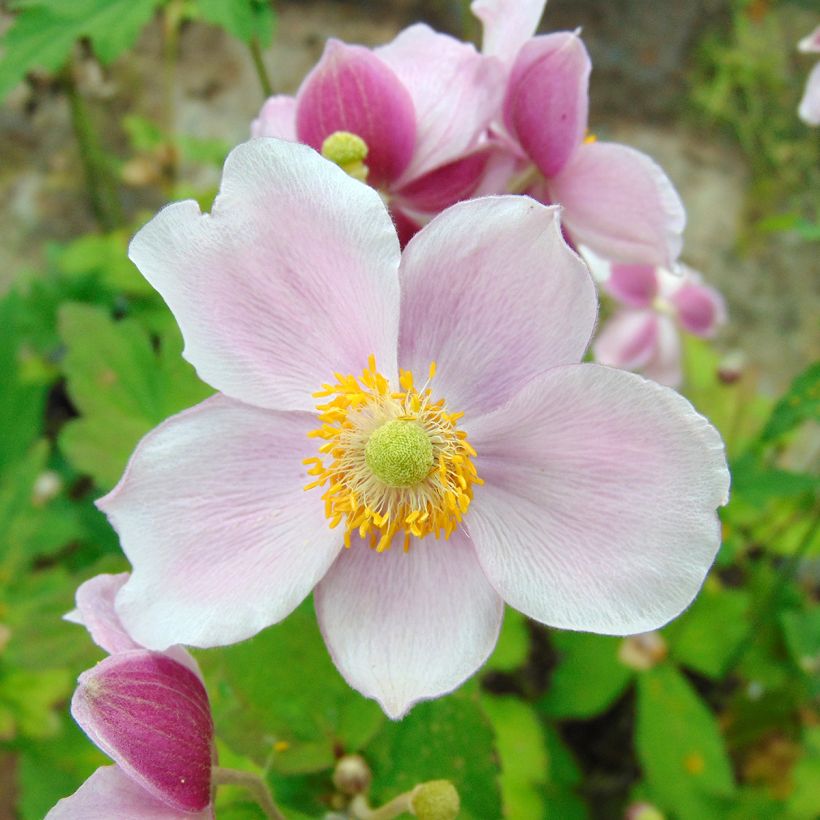

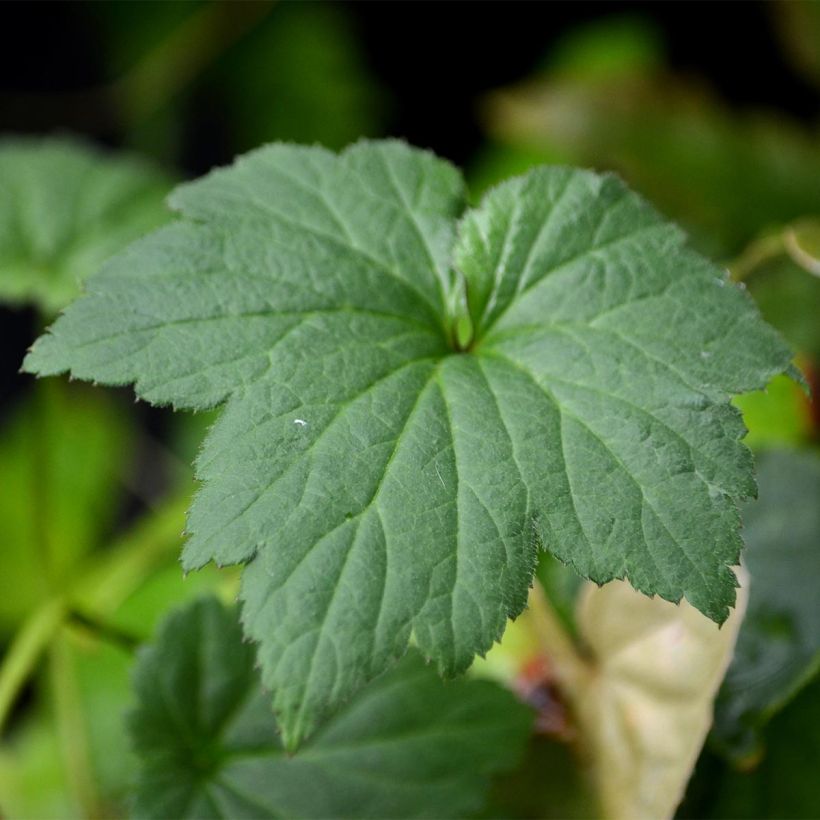

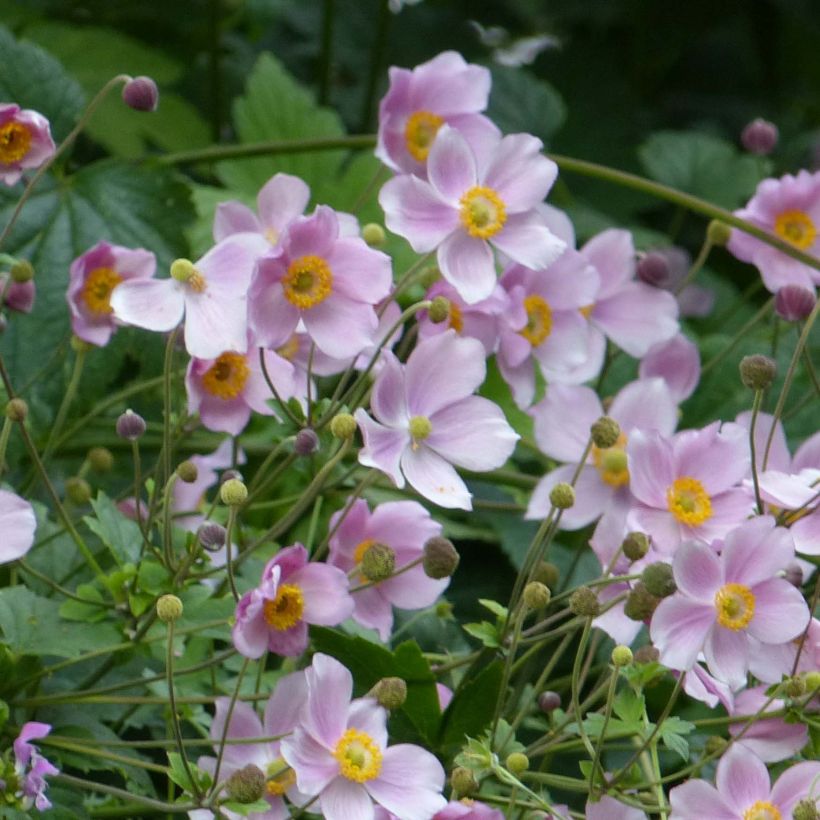

Flowering
Foliage
Plant habit
Botanical data
Anemone
hupehensis
September Charm
Ranunculaceae
Japanese anemone, Thimbleweed, Windflower
Cultivar or hybrid
Planting and care
Choose a partially shaded or non-burning sunny location, sheltered from the wind. The soil should be rich, moist or humid but well-drained, as it does not tolerate stagnant moisture, especially in winter. Avoid excessively chalky soils, as it does not tolerate them well. A well-established plant generally does not require watering, except in dry and hot climates where weekly watering will be necessary in summer.
Dig a hole slightly larger than the root ball, and deep enough to accommodate a mixture of well-decomposed compost or potting soil and garden soil. Place the root ball in the planting hole and fill with the same mixture. Lightly tamp down the soil and water thoroughly. Space the plants 40 to 60cm (16 to 24in) apart. During summer, water to stimulate flowering, especially in the first year. A layer of mulch will help maintain soil moisture. If you notice a decrease in flowering, spread compost at the base of the plant in early or late winter. The stump benefits from being protected by dead leaves in regions with cold winters.
Planting period
Intended location
Care
-
, onOrder confirmed
Reply from on Promesse de fleurs
Similar products
Haven't found what you were looking for?
Hardiness is the lowest winter temperature a plant can endure without suffering serious damage or even dying. However, hardiness is affected by location (a sheltered area, such as a patio), protection (winter cover) and soil type (hardiness is improved by well-drained soil).

Photo Sharing Terms & Conditions
In order to encourage gardeners to interact and share their experiences, Promesse de fleurs offers various media enabling content to be uploaded onto its Site - in particular via the ‘Photo sharing’ module.
The User agrees to refrain from:
- Posting any content that is illegal, prejudicial, insulting, racist, inciteful to hatred, revisionist, contrary to public decency, that infringes on privacy or on the privacy rights of third parties, in particular the publicity rights of persons and goods, intellectual property rights, or the right to privacy.
- Submitting content on behalf of a third party;
- Impersonate the identity of a third party and/or publish any personal information about a third party;
In general, the User undertakes to refrain from any unethical behaviour.
All Content (in particular text, comments, files, images, photos, videos, creative works, etc.), which may be subject to property or intellectual property rights, image or other private rights, shall remain the property of the User, subject to the limited rights granted by the terms of the licence granted by Promesse de fleurs as stated below. Users are at liberty to publish or not to publish such Content on the Site, notably via the ‘Photo Sharing’ facility, and accept that this Content shall be made public and freely accessible, notably on the Internet.
Users further acknowledge, undertake to have ,and guarantee that they hold all necessary rights and permissions to publish such material on the Site, in particular with regard to the legislation in force pertaining to any privacy, property, intellectual property, image, or contractual rights, or rights of any other nature. By publishing such Content on the Site, Users acknowledge accepting full liability as publishers of the Content within the meaning of the law, and grant Promesse de fleurs, free of charge, an inclusive, worldwide licence for the said Content for the entire duration of its publication, including all reproduction, representation, up/downloading, displaying, performing, transmission, and storage rights.
Users also grant permission for their name to be linked to the Content and accept that this link may not always be made available.
By engaging in posting material, Users consent to their Content becoming automatically accessible on the Internet, in particular on other sites and/or blogs and/or web pages of the Promesse de fleurs site, including in particular social pages and the Promesse de fleurs catalogue.
Users may secure the removal of entrusted content free of charge by issuing a simple request via our contact form.
The flowering period indicated on our website applies to countries and regions located in USDA zone 8 (France, the United Kingdom, Ireland, the Netherlands, etc.)
It will vary according to where you live:
- In zones 9 to 10 (Italy, Spain, Greece, etc.), flowering will occur about 2 to 4 weeks earlier.
- In zones 6 to 7 (Germany, Poland, Slovenia, and lower mountainous regions), flowering will be delayed by 2 to 3 weeks.
- In zone 5 (Central Europe, Scandinavia), blooming will be delayed by 3 to 5 weeks.
In temperate climates, pruning of spring-flowering shrubs (forsythia, spireas, etc.) should be done just after flowering.
Pruning of summer-flowering shrubs (Indian Lilac, Perovskia, etc.) can be done in winter or spring.
In cold regions as well as with frost-sensitive plants, avoid pruning too early when severe frosts may still occur.
The planting period indicated on our website applies to countries and regions located in USDA zone 8 (France, United Kingdom, Ireland, Netherlands).
It will vary according to where you live:
- In Mediterranean zones (Marseille, Madrid, Milan, etc.), autumn and winter are the best planting periods.
- In continental zones (Strasbourg, Munich, Vienna, etc.), delay planting by 2 to 3 weeks in spring and bring it forward by 2 to 4 weeks in autumn.
- In mountainous regions (the Alps, Pyrenees, Carpathians, etc.), it is best to plant in late spring (May-June) or late summer (August-September).
The harvesting period indicated on our website applies to countries and regions in USDA zone 8 (France, England, Ireland, the Netherlands).
In colder areas (Scandinavia, Poland, Austria...) fruit and vegetable harvests are likely to be delayed by 3-4 weeks.
In warmer areas (Italy, Spain, Greece, etc.), harvesting will probably take place earlier, depending on weather conditions.
The sowing periods indicated on our website apply to countries and regions within USDA Zone 8 (France, UK, Ireland, Netherlands).
In colder areas (Scandinavia, Poland, Austria...), delay any outdoor sowing by 3-4 weeks, or sow under glass.
In warmer climes (Italy, Spain, Greece, etc.), bring outdoor sowing forward by a few weeks.

































